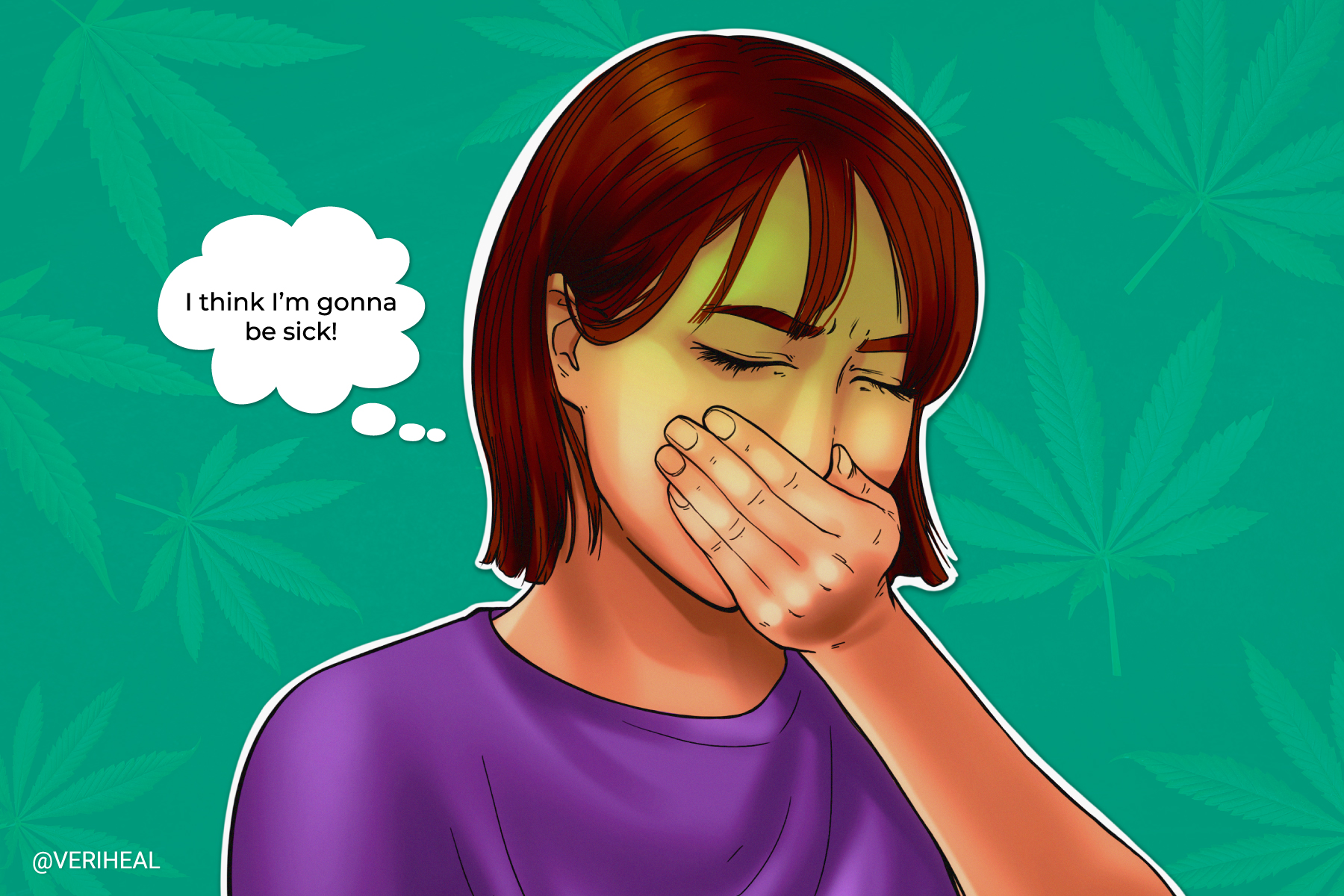Medical Marijuana Is a Possible Option for Tinnitus

What You Need to Know: Medical Cannabis for Tinnitus
While current research on the benefits of cannabis for tinnitus treatment presents different findings, there is optimism surrounding its potential. Certain studies suggest that cannabinoids, particularly THC and CBD, might influence auditory processing regions in the brain, such as the dorsal cochlear nuclei (DCN) and ventral cochlear nuclei (VCN), which are linked to tinnitus. Notably, there are individual cases, like a study involving dronabinol (a synthetic form of THC), indicating potential relief for specific types of tinnitus associated with increased intracranial pressure.
Despite the ongoing debate and the need for more comprehensive research, these preliminary findings hint at the possibility of cannabis offering relief for certain tinnitus cases. Individuals grappling with tinnitus may find some encouragement in the potential benefits of cannabis, but it remains crucial to consult healthcare professionals for personalized guidance and to stay informed as more research emerges in this area of study.
The Science Behind Medical Cannabis for Tinnitus
- Tinnitus and Epilepsy: What is the Link?
- Should You Use Cannabis for Tinnitus
- Medical Cannabis and Tinnitus: A Positive Case Study
- Types & Causes of Tinnitus
- A Note About Medical Marijuana and Tinnitus
Tinnitus, a symptom of many conditions, is known for causing ringing in the ears when there is no such sound present. Cannabis and tinnitus have a long history together, but can it help relieve tinnitus symptoms? The answer to this is a bit complicated as ear, nose, and throat doctors struggle to find a cure for it. Many researchers believe that the endocannabinoid system (ECS) has a role to play in this constant sound-inducing symptom (9).
The ECS is a system in our bodies that works through the activation of fat-based neurotransmitters. These transmitters including anandamide (AEA) and 2-arachidonoylglycerol (2-AG) are responsible for modulating several processes in our body including maintaining proper body temperature, activating the immune system, and managing how we perceive pain. When medical marijuana is consumed, these neurotransmitters are controlled through the activation of cannabinoid receptors CB1 and CB2. CB1 transmitters are typically found throughout the central nervous system and the brain. CB2 receptors are found in many different types of cells in the body.
Evidence suggests that cannabinoids such as Δ9-tetrahydrocannabinol (THC) and cannabidiol (CBD) may play a much larger role in auditory processing regions of the brain than previously thought (9). Researchers have found that there are many CB1 receptors, which are known for interacting with THC, in the dorsal cochlear nuclei (DCN) and the ventral cochlear nuclei (VCN). The DCN and VCN are nerves in the brain stem that carry auditory information from the ears into the cochlear nucleus (CN), where sound is interpreted in the brain.
One accepted theory of developing tinnitus is that once the DCN and VCN are damaged, that the inner hair cells change in an attempt to compensate for damaged cochlear cells (10). This causes the nerves to become over-excited, leading to neural hyperactivity. These nerves can be modulated through the ECS and CB1 receptors, which is one reason why consuming cannabinoids can cause an increase in tinnitus (9).
Specialized cells in the DCN have also been shown to produce diacylglycerol (DAG) enzymes, which are used in the creation of 2-AG, further adding to the evidence of the potential role of cannabinoids when it comes to auditory processing in the brain (10).
What is interesting is that the same CB1 receptors in the DCN are also responsible for controlling the brain’s ability to change (plasticity), and are players when medications are used for the treatment of long-term depression (9).
Tinnitus and Epilepsy: What is the Link?
Some researchers believe that tinnitus is a form of sensory epilepsy because of how it occurs from neural hyperexcitability in the DCN and VCN (15). Therefore, further research is exploring the use of cannabinoid drugs that are cannabinoid receptor agonists or that can slow down neural hyperactivity. Some tinnitus patients are given anti-epileptic drugs such as gabapentin, carbamazepine, and lamotrigine. However, the positive and negative effects of using these medications for tinnitus are still being studied (10).
Research involving animals and cannabinoids has shown that cannabinoids have the potential to suppress epileptiform and seizures (10). This makes cannabis a potential treatment for tinnitus, but more research is still needed in this area in order to safely prescribe it.
Should you use Cannabis for Tinnitus?
Studies in both animals and humans show a very conflicting story when it comes to whether there is potential for a positive result in using cannabis for the symptom of tinnitus, which is why many physicians are unable to make a clear decision for medical marijuana or against it when it comes to tinnitus.
Cannabinoid Studies in Animals
A 2015 study focusing on rats tested 1:1 THC to CBD doses and how it affected the tinnitus symptoms in the animals. With the presence of four different groups that were given the cannabinoid combination with and without tinnitus, the researchers were able to get a clearer picture of the effects of cannabinoids on the rats (18). The rats that did have tinnitus had the symptom induced either acoustic trauma or a sham procedure. The study took place over 30 days where the animals were given the cannabinoids 30 minutes before tinnitus behavioral testing. The rats that had acoustic trauma, but not necessarily tinnitus, had an increased risk of developing tinnitus at multiple sound frequencies, as opposed to the sham or control group. This study showed that cannabinoids may promote the development of tinnitus in subjects with preexisting hearing damage.
A few other studies on animals also gave similar results that cannabis and the activation of certain endocannabinoids may increase tinnitus. A 2017 study on guinea pigs showed that when a CB1 agonist called arachidonyl-2-chloroethylamide (ACEA) was given, it may be an otoprotective agent. Meaning that it may protect hearing, but it had no effect on diminishing tinnitus symptoms for the animals (10).
Additionally, when rats with hearing damage triggered by salicylate, a medication known to cause tinnitus, CB1 receptors in the VCN were downregulated, but the DCN still exhibited hyperexcitability. This showed that there was not any positive change associated with the cannabinoids to treat tinnitus in animals (10).
Studies on Medical Cannabis and Humans
One cross-sectional study in 2020 reviewed whether there was an association between cannabis use and tinnitus. The authors of the study evaluated a National Health and Nutrition Examination Surgery Survey (NHANES) that took place in 2011-2012. The data was collected from 2705 adults between the ages of 20-69 who had undergone audiometric testing and then were administered the survey. This study found that the use of medical cannabis at least once during each month of a 12-month period was significantly associated with an increase in tinnitus for patients who consumed it. There was no relationship between the amount or frequency of cannabis use and severity or frequency of tinnitus. The use of alcohol, cocaine, methamphetamine, and heroin was not associated with tinnitus (12).
The results of this study contradict a similar study that utilized data from National Surveys on Drug Use and Health (NSDUH) filled out by participants between 35 and 49 (10). This study found that there was no statistically significant correlation between marijuana users and tinnitus.
Medical Cannabis and Tinnitus: A Positive Case Study
A case study published in the Journal of Ocular Pharmacology and Therapeutics put to test dronabinol, a lab-made form of THC against idiopathic intracranial hypertension, which causes objective tinnitus along with headaches, transient blindness, and photophobia (fear of light) (13). The patient in the case study saw improvement with her debilitating symptoms, including tinnitus, that was caused by an increase in pressure in her skull. The dronabinol was initially dosed at 10 mg twice a day, then reduced to 5 mg twice a day, and was able to relieve all of her symptoms without any psychoactive effects. Additionally, previously noted eye nerve abnormalities associated with increased skull pressure were also resolved.
This case study, though small, gives promise that cannabinoids may have the potential to help relieve the objective form of tinnitus. However, it is important to keep in mind that her results may differ because dronabinol contains synthetic, or lab-made THC as opposed to un-altered THC found in medical cannabis.
Types & Causes of Tinnitus
While it is known for the ringing of the ears when no such sound is present, tinnitus sufferers can hear a variety of sounds related to the condition including hissing, buzzing, whistling, swooshing, and clicking (2). The two types of tinnitus are subjective and objective, though some patients experience a mix of both called pulsatile tinnitus.
Though doctors have several theories on the biological and inner ear pathways that cause tinnitus, they still do not fully understand what causes it, except in pulsatile form or from classically known causes. Additionally, there is no scientifically validated cure, but there are treatments available that help ease symptoms for patients who experience it. A primary care doctor or ENT specialist should be consulted for ongoing symptoms of tinnitus, and promptly consulted if associated with hearing loss, dizziness, headache, or other symptoms.
Subjective Tinnitus
Subjective tinnitus occurs when the patient hears head or ear noises that other people cannot hear. It is typically connected to auditory and neurological reactions of the brain to a patient’s hearing loss (2). Some doctors believe it is a phenomenon similar to phantom limb pain which is when nerves keep firing in patients who have had amputations (7). Almost all reported cases of tinnitus are considered the subjective variety.
Some known causes of the subjective form of tinnitus include (7):
- Hearing loss that is caused by damage to the inner ear or the nerve from the ear to the brain, also known as sensorineural hearing loss. These causes include the following:
- Acoustic trauma
- Aging, also known as presbycusis
- Meniere’s Disease
- Medications that damage hearing (ototoxic drugs) include aminoglycosides, Azithromycin, Viomycin, Quinine, and anti-cancer drugs Cisplatin & Carboplatin.
- Infections and central nervous system lesions that affect auditory pathways. Some examples include multiple sclerosis (MS), tumors, and stroke.
- Disorders that cause hearing loss include obstruction of the ear canal, Eustachian tube dysfunction, and otosclerosis.
- Temporomandibular joint dysfunction (TMJ)
Objective Tinnitus
Is actual noise that patients hear that comes from the middle ear (7). This type of tinnitus occurs when a patient hears noises that are audible to both themselves and other people. These sounds are usually produced by internal functions or movement (2). A well-known example of this is how sometimes people can hear ocean waves, but it is in fact just the sound of circulating blood flow. This normally occurs when people hold a seashell or cup over their ears. However, in objective tinnitus patients, they may hear the ocean because of conditions that cause increased blood flow or abnormal formations such as tumors, narrowed arteries, or vascular malformations.
Some causes of this rare form of tinnitus include (7):
- Turbulent blood flow through the carotid artery or jugular vein, often caused by heart disease
- Highly vascular middle ear tumors
- Dural arteriovenous malformations (AVMs)
- Muscle spasms of palatal muscles or muscles in the middle ear
Pulsatile Tinnitus
Patients with this type often experience a thumping or whooshing noise in one or both ears, but it seems to follow a steady beat (1). It can be characterized as subjective tinnitus because the patient is hearing sounds others are not. But like objective tinnitus, it is usually caused by noises in the body. Sometimes a doctor can also hear these noises from your body with a stethoscope. It can also be called rhythmic, vascular, or pulse-synchronous tinnitus.
Pulsatile tinnitus symptoms can be caused by (1):
- Idiopathic intracranial hypertension
- Presence of irregular blood vessels in the brain or around the ear including a narrow or kinked carotid artery or the jugular vein
- High blood pressure
- Hyperthyroidism
- Severe anemia
- Atherosclerosis, also called “heart disease” is a condition in which your arteries are hardened by cholesterol and other fats
- Head and neck tumors
- Arteriovenous malformations, a condition that typically only affects one ear and is a problematic connection issue between arteries and veins.
A Note About Medical Marijuana & Tinnitus
It is important to keep in mind that much of the research regarding tinnitus and medical cannabis shows that it can increase tinnitus or put you at a higher risk for developing tinnitus. If you have tinnitus it is essential to talk to your healthcare provider or audiologist about your symptoms to get a proper diagnosis. As seen in the case study above, not all types of tinnitus are the same and may require different testing, treatments, or medications for you to get relief.
Additionally, since tinnitus is typically a symptom as opposed to a stand-alone disorder, it is important to make sure you don’t have it due to a life-threatening condition. Medical cannabis may be able to help some medical issues that cause tinnitus such as MS, Meniere’s disease, or stroke. Larger bodies of evidence are still needed to confirm these benefits.
Note: Veriheal does not intend to give this as professional medical advice. Do not attempt to self-diagnose or prescribe treatment based on the information provided on this page. Always consult a physician before making any decision on the treatment of a medical condition.
1. Ambardekar, N. (2021, July 28). Pulsatile tinnitus: Symptoms, causes, and treatments. WebMD. Retrieved November 1, 2021, from https://www.webmd.com/healthy-aging/aging-pulsatile-tinnitus#
2. Causes. American Tinnitus Association. (2021, April 27). Retrieved November 1, 2021, from https://www.ata.org/understanding-facts/causes
3. Cavallaro, Angela & Martines, Francesco & Cannizzaro, Carla & Lavanco, Gianluca & Brancato, Anna & Carollo, Gaetano & Plescia, Fabiana & Salvago, Pietro & Cannizzaro, Emanuele & Colucci, D. (2019). Cannabis and hearing care. The Hearing Journal, 72(7), 44. https://www.researchgate.net/publication/334157922_Cannabis_and_Hearing_Care_History_Legalization_and_Biochemistry
4. Colucci, D. A. (2019). Cannabis and hearing care. The Hearing Journal, 72(8), 43. https://journals.lww.com/thehearingjournal/Fulltext/2019/08000/Cannabis_and_Hearing_Care__Hearing_Loss_and.12.aspx
5. Ghosh, S., Stansak, K., & Walters, B. J. (2021). Cannabinoid signaling in auditory function and development. Frontiers in Molecular Neuroscience, 14. https://www.frontiersin.org/articles/10.3389/fnmol.2021.678510/full?utm_source=S-TWT&utm_medium=SNET&utm_campaign=ECO_FNINS_XXXXXXXX_auto-dlvrit
6. Han, B. I., Lee, H. W., Kim, T. Y., Lim, J. S., & Shin, K. S. (2009). Tinnitus: characteristics, causes, mechanisms, and treatments. Journal of clinical neurology (Seoul, Korea), 5(1), 11–19. https://www.ncbi.nlm.nih.gov/pmc/articles/PMC2686891/
7. Kaylie, D. M. (2021, October 28). Tinnitus – ear, nose, and throat disorders. Merck Manuals Professional Edition. Retrieved November 1, 2021, from https://www.merckmanuals.com/professional/ear,-nose,-and-throat-disorders/approach-to-the-patient-with-ear-problems/tinnitus
8. Kleinjung T., Langguth B. (2020) Pharmacotherapy of Tinnitus. In: Searchfield G.D., Zhang J. (eds) The Behavioral Neuroscience of Tinnitus. Current Topics in Behavioral Neurosciences, vol 51. Springer, Cham. https://link.springer.com/chapter/10.1007/7854_2020_169
9. Mucia, Marianna & Rizzo, Serena & Martini, Alessandro & Plescia, Fulvio. (2016). Role of cannabinoids in the treatment of tinnitus. Acta Medica Mediterranea. 32. 903-909. https://core.ac.uk/download/pdf/80166484.pdf
10. Narwani, V., Bourdillon, A., Nalamada, K., Manes, R. P., & Hildrew, D. M. (2020). Does cannabis alleviate tinnitus? A review of the current literature. Laryngoscope Investigative Otolaryngology, 5(6), 1147–1155. https://onlinelibrary.wiley.com/doi/full/10.1002/lio2.479
11. Perin, P., Mabou Tagne, A., Enrico, P., Marino, F., Cosentino, M., Pizzala, R., & Boselli, C. (2020). Cannabinoids, inner ear, hearing, and tinnitus: A neuroimmunological perspective. Frontiers in Neurology, 11. https://www.frontiersin.org/articles/10.3389/fneur.2020.505995/full?utm_source=F-AAE&utm_medium=EMLF&utm_campaign=MRK_1513178_54_Neurol_20201222_arts_A
12. Qian, Z. J., & Alyono, J. C. (2020). An association between marijuana use and tinnitus. American journal of otolaryngology, 41(1), https://www.ncbi.nlm.nih.gov/pmc/articles/PMC7278074/
13. Raby, W. N., Modica, P. A., Wolintz, R. J., & Murtaugh, K. (2006). Dronabinol reduces signs and symptoms of idiopathic intracranial hypertension: A case report. Journal of Ocular Pharmacology and Therapeutics, 22(1), 68–75. https://www.liebertpub.com/doi/10.1089/jop.2006.22.68
14. Smith P.F. (2011) The Endocannabinoid System in the Cochlear Nucleus and Its Implications for Tinnitus Treatment. In: Møller A.R., Langguth B., De Ridder D., Kleinjung T. (eds) Textbook of Tinnitus. Springer, New York, NY. https://link.springer.com/chapter/10.1007/978-1-60761-145-5_79
15. Smith, P. F., & Zheng, Y. (2016). Cannabinoids, cannabinoid receptors and tinnitus. Hearing Research, 332, 210–216. https://www.sciencedirect.com/science/article/abs/pii/S0378595515300368
16. U.S. Department of Health and Human Services. (2014, September). What is tinnitus? – causes and treatment. National Institute of Deafness and Other Communication Disorders. Retrieved November 1, 2021, from https://www.nidcd.nih.gov/health/tinnitus
17. Valentino, W. L., & McKinnon, B. J. (2019). What is the evidence for cannabis use in otolaryngology?: A narrative review. American Journal of Otolaryngology, 40(5), 770–775. https://www.sciencedirect.com/science/article/abs/pii/S0196070919304685
18. Zheng, Y., Reid, P., & Smith, P. F. (2015). Cannabinoid CB1 receptor agonists do not decrease, but may increase acoustic trauma-induced tinnitus in rats. Frontiers in Neurology, 6. https://www.frontiersin.org/articles/10.3389/fneur.2015.00060/full
19. Zheng, Y., & Smith, P. F. (2019). Cannabinoid drugs: Will they relieve or exacerbate tinnitus? Current Opinion in Neurology, 32(1), 131–136. https://journals.lww.com/co-neurology/Abstract/2019/02000/Cannabinoid_drugs__will_they_relieve_or_exacerbate.22.aspx









